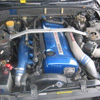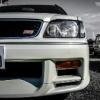Alternate To Loosing Your License
Announcements
-
Similar Content
-
Latest Posts
-
I think you might have skipped a whole vowel sounds there C.
-
Depends on the part of NZ. No probs with a short duck. 🦆
-
I wonder what your thoughts of a "long nose, short deck" are if that were said in a kiwi accent...
-
I read Duncan's post, said the same thing in my head, scrolled down, and had De Ja Vu...
-
Done about 5k Km on the PS5's now, excellent street tyres, great in the dry, and the wet, seem to be wearing very well, I haven't measured tread depth, but it looks like minimal wear, I also had a different alignment done about 1500km ago, From looking at the tread wear, which is really only minimal, the alignment changes were based off how the tread looked, and how it felt throwing it around, the changes have shown great results 215/45 17 at 32 psi Front Caster: 5.5° Camber: -1.5° Toe: 0.0mm Rear Camber: -1.0° Total Toe-in: 1.5mm I actually prefer PS5's now over the RS4's, as the PS5's are much better in the wet IMO, and as the MX5 gets driven in all weather conditions doing daily duties, hwy trips, and blasts in the mountains, wet weather grip is high on my priority list
-







Recommended Posts
Create an account or sign in to comment
You need to be a member in order to leave a comment
Create an account
Sign up for a new account in our community. It's easy!
Register a new accountSign in
Already have an account? Sign in here.
Sign In Now